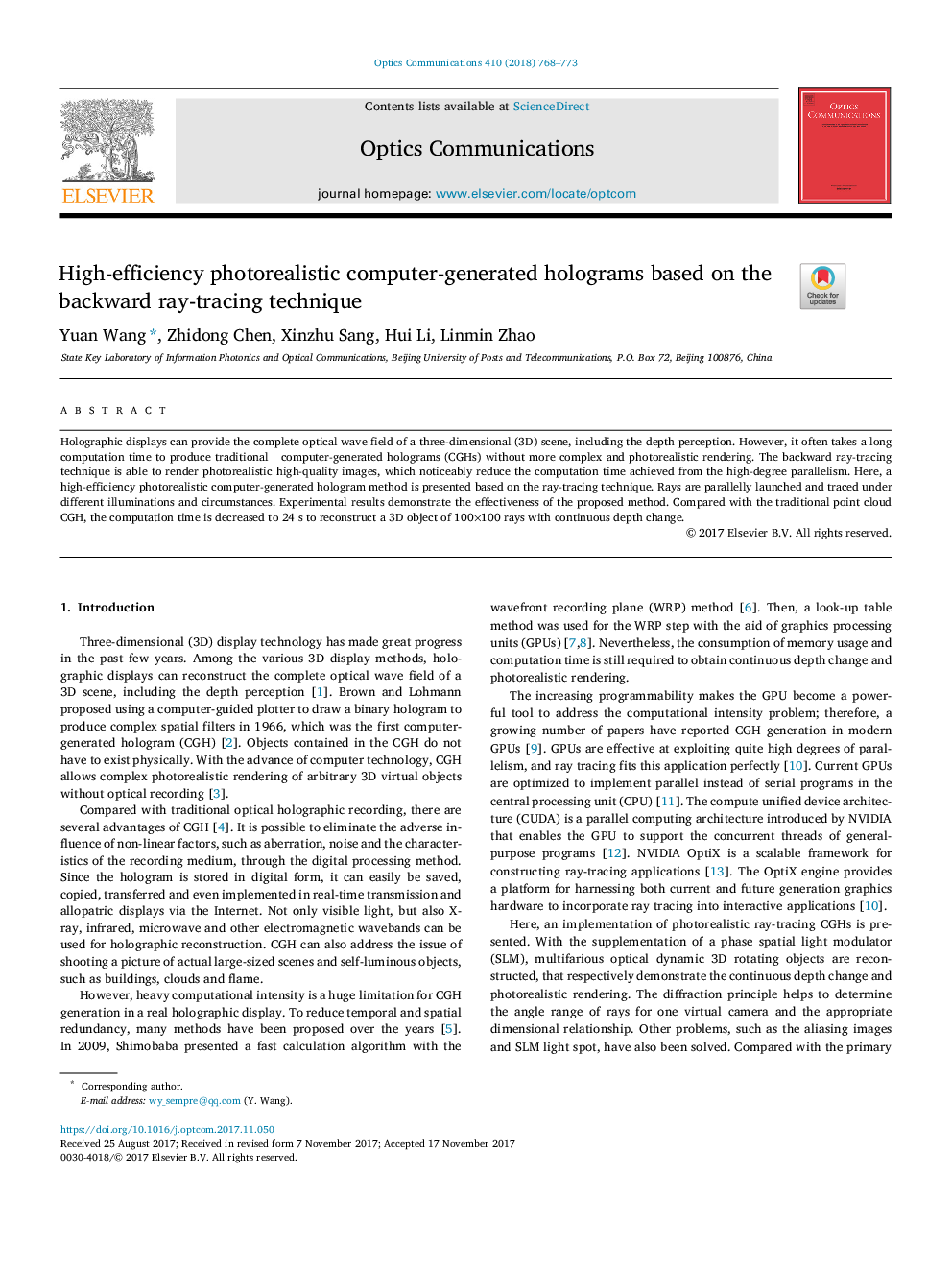| Article ID | Journal | Published Year | Pages | File Type |
|---|---|---|---|---|
| 7926256 | Optics Communications | 2018 | 6 Pages |
Abstract
Holographic displays can provide the complete optical wave field of a three-dimensional (3D) scene, including the depth perception. However, it often takes a long computation time to produce traditional computer-generated holograms (CGHs) without more complex and photorealistic rendering. The backward ray-tracing technique is able to render photorealistic high-quality images, which noticeably reduce the computation time achieved from the high-degree parallelism. Here, a high-efficiency photorealistic computer-generated hologram method is presented based on the ray-tracing technique. Rays are parallelly launched and traced under different illuminations and circumstances. Experimental results demonstrate the effectiveness of the proposed method. Compared with the traditional point cloud CGH, the computation time is decreased to 24 s to reconstruct a 3D object of 100Ã100 rays with continuous depth change.
Related Topics
Physical Sciences and Engineering
Materials Science
Electronic, Optical and Magnetic Materials
Authors
Yuan Wang, Zhidong Chen, Xinzhu Sang, Hui Li, Linmin Zhao,
